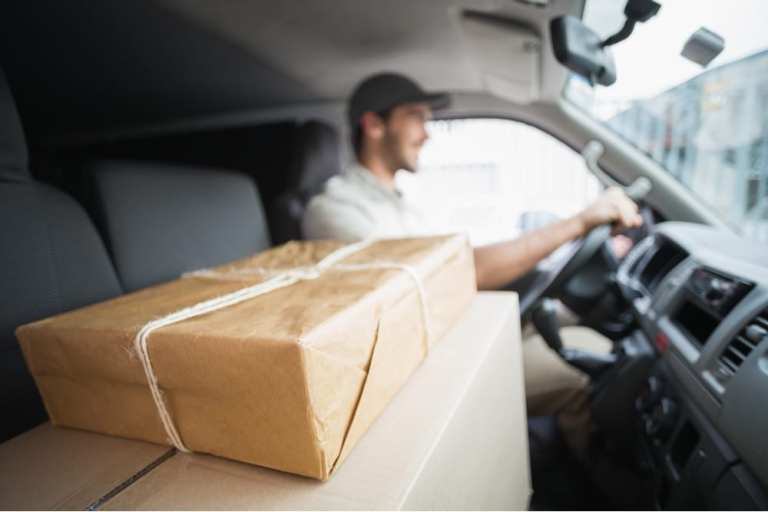
American runs on trucking, from 18-wheelers to light trucks that can navigate impossible urban streets.
Trucking is the lifeline by which food appears overnight in our supermarkets, and a host of other products that use the highways as a circulatory system to supply a nation’s needs.
Those lofty platitudes aside, much of trucking and logistics is stuck in another decade and, in rare cases, the last century. Andrew Leone, CEO of logistics startup Dispatch, just couldn’t stand the inefficiency anymore. So, he did something about it. Just don’t call him a disruptor.
“Disruptor is a term that’s thrown around a lot these days,” Leone told PYMNTS. “I’d say absolutely we’re an innovator. What we’re doing is bringing a very antiquated space up to current standards and beyond.”
“When I think of a true disruption,” he joked, “that’d be like inventing teleportation logistics. I think we’re probably somewhere in between true innovation and maybe some disruption.”
Pointing to shrinking delivery windows that have gone from seven days to two days to next-day to same-day in about five years, Leone, like others, is focusing on “last mile” logistics for companies that don’t have the investment clout to build their own systems.
Noting that final-mile delivery has undergone major change after having historically required tons of capital, Leone told PYMNTS that “Most organizations aren’t doing tens of billions of dollars where they can invest in that level of infrastructure. But they still have to compete.”
That’s where Dispatch tech comes into play.
“Regardless of whether they’re [a small- to medium-sized business (SMB)] or an enterprise, companies have the ability to tap into a fleet of vehicles or capacity to be able to deliver not [just] same-day, but within an hour.”
Dispatch has combined the Grubhub-style aggregator model with the Uber-like rideshare method for a gig-based approach to logistics. Dispatch recruits drivers who, after being thoroughly vetted, use their own vehicles in an update of same-day courier service.
“Automate The Entire Piece”
Leone has plans to be operating in 50 U.S. markets by the fall; the company is currently in over 40.
To help make this happen, Dispatch plans to debut its own delivery management platform in the fall, where orders for auto parts or printed retail signage will be routed by the company’s artificial intelligence (AI) so that use of truck inventory and opportunity can better align.
“Our goal is to completely cover the nation, so this is available in every single market,” he said. “That’s the delivery piece of our business. The idea is that [companies] don’t have to manage a fleet. They don’t have to manage outsourcing. That is all handled through our software holistically so that a distributor or a business can tie us into their eCommerce environment, into their ERP system, and then we facilitate that final mile delivery, whether it’s with their existing assets on our outsourced network. It doesn’t really matter. We automate that entire piece.”
The majority of Dispatch’s business is B2B — think of an auto parts store supplying nearby repair shops, paper goods going to restaurants, signage to retail stores — that kind of thing. It’s smaller parcels delivered quickly, with total app-based trackability.
Distribution A “Massive” Opportunity
Dispatch is a reminder how FedEx and UPS went from dull to dazzling as they became more a feature — and a valuable service — in everyday life. Leone is reticent to compare his startup with those giants of enterprise, but he’s not afraid of fighting for his share of their market.
“In the U.S. alone, distribution is a $6 trillion business,” he said. “It’s a third of U.S. GDP. It’s a massive, massive space.”
Leone’s sites are set on a nice slice of that action, as are others.
This is why, as the nation hunkered down at home, Leone and his team stayed busy expanding into nine more U.S. markets during the depths of the pandemic lockdowns. Since cratering in April, Leone has seen month-over-month volume improvements.
“Supply chain, final-mile innovation and strategy are things that a lot of businesses know they need to do, but when you’re gobbling up market share, operational expenses and some of that other stuff seems less important,” he told PYMNTS.
Having raised $22 million from investors to date, Leone said the money is going into system investments that increase driver earnings and put an end to logistical inefficiencies like a truck dropping off its freight and returning to the depot empty.
Here’s the point: Margins on that trip could be improved with an AI-powered platform that matches trucks to loads, maximizing utilization, Leone said. And he means to do it.